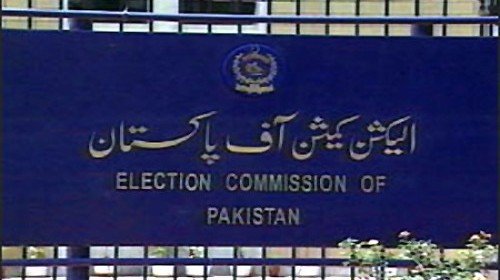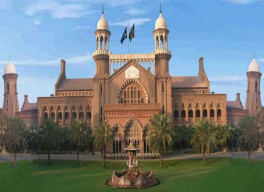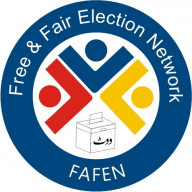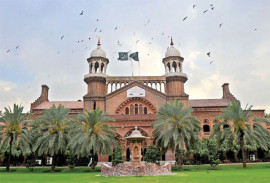
Election Commission of Pakistan (ECP) Chief Election Commissioner (CEC) Sikandar Sultan Raja on Thursday refused to meet President Dr Arif Alvi to finalise the date for the next general elections, citing recent amendments to the Elections Act 2017.
Raja said that after the Elections Act (Amendment) Bill 2023 was enacted into law, announcing the date for polls was the sole prerogative of the ECP.
The president had written to the CEC on Wednesday, inviting him to meet and finalise a date for the elections within the 90-day constitutional deadline ending in early November.
Writing back to him, Raja declined the request citing different reasons, concluding that the meeting would be of no use.
“The chief election commissioner is invited for a meeting with the president today or tomorrow to fix an appropriate date,” President Alvi had written, referring to the constitutional article on the 90-day deadline.
The president had asked the CEC to meet him for consultation on the election date, which he felt he was bound to announce under Article 48(5) of the Constitution.
Read 54 amendments proposed to Election Act
In his reply, Raja pointed out that Section 57 of the Elections Act of 2017 had recently been amended and, unlike the previous position, now the commission had been empowered to announce the date(s) for elections.
Raja reminded Alvi that the National Assembly was dissolved by the president under terms of Article 58(1) of the Constitution on the advice of the then Prime Minister Shehbaz Sharif on Aug 9, 2023.
“It is imperative to point out that Section 57 of the Elections Act, 2017 has been amended vide amendment Act, 2023 on 26th June, 2023,” CEC Raja stated.
Prior to the amendment of Section 57(1) of the act, Raja said, the president was required to consult the ECP before appointing a date for election. However, after the amendment in Section 57, the commission had been empowered to announce the date or dates for the general elections, he said.
Where the president dissolved the National Assembly in his discretion as provided in Article 58(2) read with Article 48(5) of the Constitution, Raja maintained, then he had to appoint a date for the general elections. However, Raja continued, if the assembly was dissolved on the advice of the prime minister or by afflux of time as provided in Article 58(1) of the Constitution, then “the Commission understands and believes that power to appoint a date or dates for elections rests exclusively with the Commission".
Raja said that the ECP believed with utmost respect that the reliance placed on the provisions of the Constitution mentioned in President Alvi’s letter - Article 48 - are not applicable in the present context.
Article 48(1) of the Constitution provided that the president shall act on the advice of the prime minister, Raja said, adding that Clause (5) of Article 48 contained non-obstante clause. “It is on record that the National Assembly was dissolved on the advice of the prime minister; therefore, the provisions of Article 48(5) are not attracted thereto.”
Read more Sole burden of poll conduct ‘lies on ECP’
The CEC added that delimitation of constituencies was one of the foundational legal steps towards election.
In pursuance of the last preceding census officially published on Aug 7, 2023, he added, the commission decided to carry out fresh delimitation of constituencies as provided under Section 17(2) of the Elections Act, 2017, to protect the fundamental rights of contesting candidates, political parties, and electorates as guaranteed under Article 17(2) of the Constitution.
As per the ECP’s timeline, the process of fresh delimitation of the national and four provincial assembly constituencies would be completed by Dec 14, over a month beyond the 90-day deadline for conducting the general elections. The ECP needed to give 54 days’ time for completing the election process, he added.
Raja maintained that the ECP was taking its responsibility of holding the general election very seriously and had also initiated the process of inviting major political parties for their views on the electoral roadmap.
Notwithstanding the declared position of the commission, CEC Raja stated, “It is stated with all reverence, that the Commission holds the office of President in high esteem and it has always been an honour to meet and seek your kind guidance on national issues at an opportune time.”
He said “In view of the above, the commission is of the considered view that participation in the meeting would be of scant consequence.”
Meanwhile, the President House sought the opinion of the Ministry of Law and Justice on the letter written by the Election Commission of Pakistan.
The President House asked for the opinion on the viewpoint of the commission that only it had the authority to give a date for elections.




1716998435-0/Ryan-Reynolds-Hugh-Jackman-(3)1716998435-0-165x106.webp)






1730806490-0/New-Project-(2)1730806490-0-270x192.webp)







1730706072-0/Copy-of-Untitled-(2)1730706072-0-270x192.webp)
COMMENTS
Comments are moderated and generally will be posted if they are on-topic and not abusive.
For more information, please see our Comments FAQ